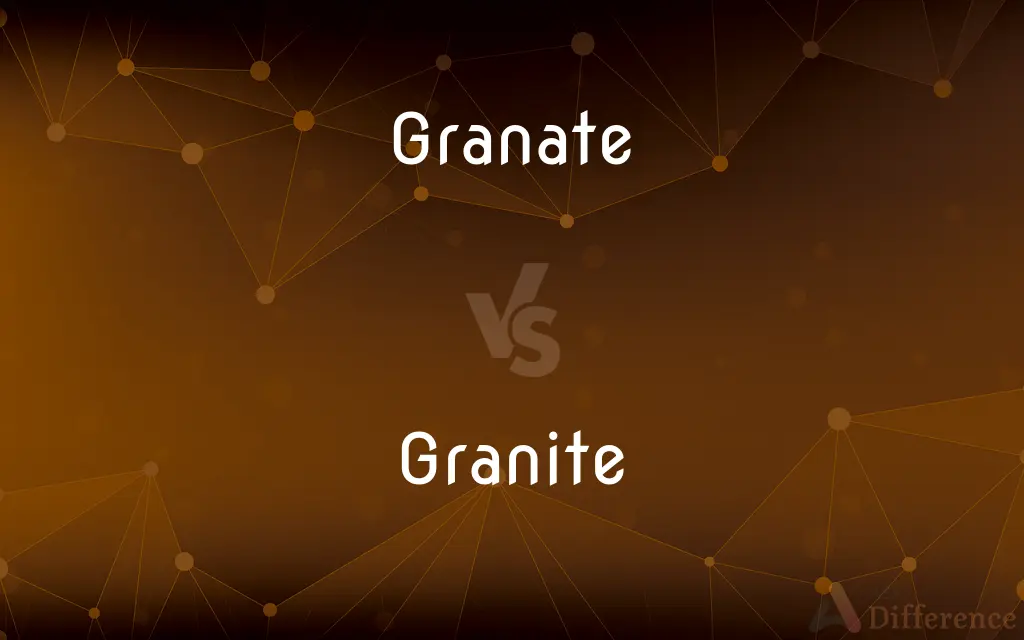Granate vs. Granite — What's the Difference?

Difference Between Granate and Granite
ADVERTISEMENT
Compare with Definitions
Granate
Archaic form of garnet
Granite
Granite () is a coarse-grained igneous rock composed mostly of quartz, alkali feldspar, and plagioclase. It forms from magma with a high content of silica and alkali metal oxides that slowly cools and solidifies underground.
Granate
See Garnet.
Granite
A common, coarse-grained, light-colored, hard igneous rock consisting chiefly of quartz, orthoclase or microcline, and mica, used in monuments and for building.
Granite
Unyielding endurance; steadfastness
A will of granite.
ADVERTISEMENT
Granite
(rock) A group of igneous and plutonic rocks composed primarily of feldspar and quartz. Usually contains one or more dark minerals, which may be mica, pyroxene, or amphibole. Granite is quarried for building stone, road gravel, decorative stone, and tombstones. Common colors are gray, white, pink, and yellow-brown.
Granite
Toughness; the quality of having a thick skin or being rough.
Granite
A crystalline, granular rock, consisting of quartz, feldspar, and mica, and usually of a whitish, grayish, or flesh-red color. It differs from gneiss in not having the mica in planes, and therefore in being destitute of a schistose structure.
Granite
Plutonic igneous rock having visibly crystalline texture; generally composed of feldspar and mica and quartz
Granite
Something having the quality of granite (unyielding firmness);
A man of granite
Share Your Discovery

Previous Comparison
Proficient vs. Practical
Next Comparison
Emplored vs. Employed














































